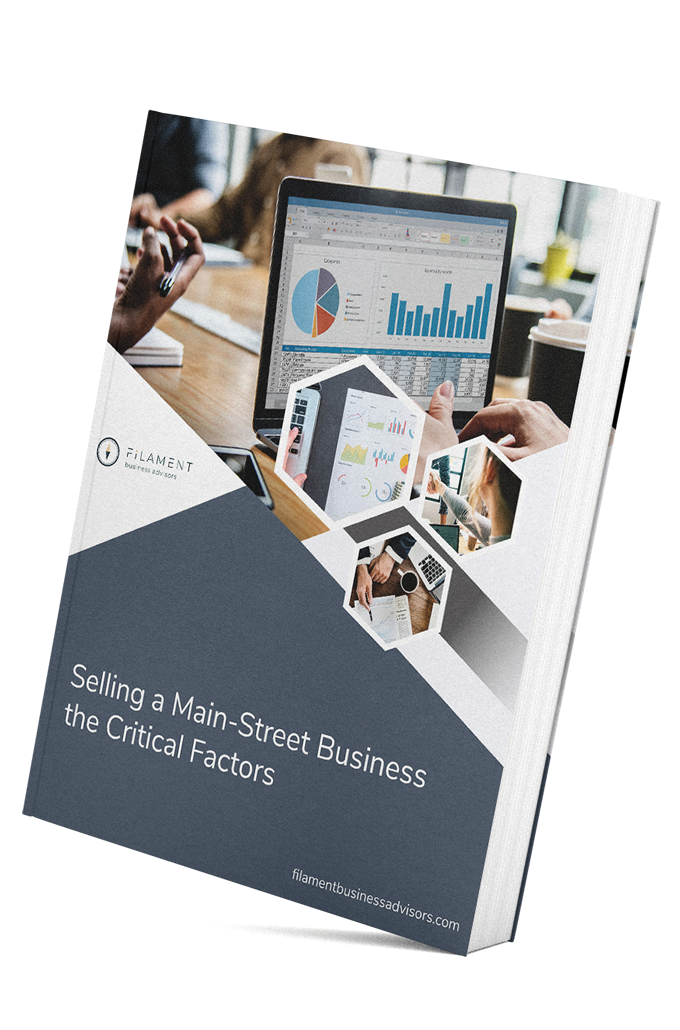
Considering Generational Strategies

When you are buying or selling a business, you might very well end up making a deal with someone from another generation. Therefore, it only makes sense to take the time to understand that individual’s background and how that might cause behavioral differences. It is important to understand and reflect upon where many of them are coming from and the collective experiences and trends that shaped their identities and perspectives. At the same time, you can identify your own biases, strengths and weaknesses that may be caused by your own upbringing.
The strategies in this article originated from Chuck Underwood who is considered a leading expert in the diversity of communication styles between generations. He is the author of a major book on the subject as well as host of the long-running “America’s Generations with Chuck Underwood” on PBS.
Generational Sensitivity
Underwood’s perspective is that people of each generation were molded by their unique formative years. The decisions that buyers and sellers make will be impacted by their generation. Mostly likely, the buyers or sellers you will be coming into contact with will be either Baby Boomers, Generation Xers and Millennials.
Working with Baby Boomers
Baby Boomers (those born between 1946 and 1964) are a major force in the business world. While they often possess a patriotic passion to improve the country, they were also witness to a time of great change via many movements including the civil rights and women’s movement.
When you’re dealing with Baby Boomers, it is important to remember that they will want to build relationships and get to know you. Common courtesy is very important to Baby Boomers. That means they’ll expect you to show up on time and turn your phone off during meetings.
You’ll want to keep in mind that older Baby Boomers may be experiencing hearing and eyesight loss. As a result, you’ll want to keep your type and font size larger, and make text easy to read.
When you’re working with your clients, it only makes sense to pay attention to the generation during which they were raised and adapt your approach accordingly. Understanding generational differences will help you get a leg up on the competition while at the same time helping your clients achieve their goals.
What is Generation X?
Generation X (or Gen X) had a wildly different formative experience than the Baby Boomers. Generation X is generally defined as being born from 1965 to 1980. This generation spent its formative years from the 1970’s through the 1990’s. In stark contrast the relatively more pleasant and optimistic childhoods of the Baby Boomers, Gen X had a rougher ride.
America became more mobile during the time period during which Generation Xers grew up. As a result, many children were uprooted and separated from their friends, family and hometown roots. Growing up, these individuals witnessed a variety of scandals ranging from political and religious figures to sports figures. Gen Xers witnessed the systematic dismantling of the American middle class and with it a general lowering of quality of life, opportunities and confidence in corporations. In the end, Gen X was quite literally left home alone and lived as “latch key kids.” It is no wonder that this neglected generation has some issues.
Individuals growing up during this time learned early on that they had to be ready to fend for themselves. Since Gen Xers have been met with consistent and systematic disappointment and even wide scale institutional betrayal, this generation, on average, is more distrustful of organizations.
Gen Xers are self-reliant and independent and one of their core values is survival of the fittest. In his view, Gen Xers are self-focused, individualistic and want everyone to skip the nonsense and get to the point. They have no real interest in getting to know you or playing a round of golf.
Working with Millennials
Millennials spent their formative years in the 1980s and early 90s. They are a very optimistic and tech savvy generation. They are also the most classroom educated generation in history.
It is also very important to note that Millennials are the most adult supervised generation in history. So-called “helicopter parents” who work to protect their children from setbacks are the norm. Employers find that Millennials are entering adulthood, but are still relying upon their parents to help them make decisions and even career choices.
Where Gen Xers are distrustful of the “wisdom of their elders,” Millennials actively seek out such advice. Likewise, Millennials tend to volunteer a good deal and look for ways to solve the world’s largest problems.
You will find that Millennials will enjoy building a relationship with you. Keep in mind these individuals tend to be quite socially conscious and they may very well expect you to agree with their views. Additionally, there is a chance that they will have their parents involved in their business dealings.
Keep in mind that the de facto tech addiction, or at the very least acute overreliance on technology, has led to issues with Millennials’ soft skills. They can often lack the ability to read another person’s body language and adjust accordingly.
In the end, regardless of what generation you are working with, it is important that you continually adapt. This will greatly increase the odds of cementing a successful deal.
Copyright: Business Brokerage Press, Inc.
The post Considering Generational Strategies appeared first on Deal Studio – Automate, accelerate and elevate your deal making.

Essential Meeting Tips for Buyers & Sellers

The buyer-seller meeting is quite often a “make or break” meeting. Your business broker or M&A Advisor will do everything possible to ensure that this meeting goes as well as possible.
It is vitally important to realize that rarely is there an offer before buyers and sellers actually meet. The all-important offer usually comes directly after this all-important meeting. As a result, you want to ensure that meetings are as positive and productive as possible.
Buyers need to understand how the process of selling a business works and what is expected of them from the process. Buyers also need to understand that following their broker’s advice will increase the chances of a successful outcome.
Sellers should be ready to be honest and forthcoming during the meeting. They also want to be sure to not say or do anything that could come across as a strong-armed sales tactic.
Asking the Right Questions
If you are a buyer preparing to meet a business owner for the first time, you’ll want to make sure any questions you ask are appropriate and logical. It is important for buyers to place themselves in the shoes of the other party.
Buyers also shouldn’t show up to the buyer-seller meeting without having done their homework. So be sure to do a little planning ahead so that you are ready to go with good questions that show you understand the business.
Building a Positive Relationship
Buyers should, of course, plan to be polite and respectful. They should also be prepared to avoid discussing politics and religion, which often can be flashpoints for confrontation. When sellers don’t like prospective buyers, then the odds are good that they will also not place trust in them.
For most sellers, their business is a legacy. It quite often represents years, or even decades, of hard work. Needless to say, sellers value their businesses. Many will feel as though it reflects them personally, at least in some fashion. Buyers should keep these facts in mind when dealing with sellers. A failure to follow these guidelines could lead to ill will between buyers and sellers and negatively impact the chances of success.
Sellers Should Be Truthful
Sellers also have a significant role in the process. While it is true that sellers are trying to sell their business, they don’t want to come across as a salesperson. Instead, sellers should try to be as real and honest as possible.
Every business has some level of competition. With this in mind, sellers should not pretend that there is zero competition. A savvy buyer will be more than a little skeptical.
The key to a successful outcome is for business brokers and M&A Advisors to work with their buyers and sellers well in advance and make sure that they understand what is expected and how best to approach the buyer-seller meeting. With the right preparation, the odds of success will skyrocket.
Copyright: Business Brokerage Press, Inc.
The post Essential Meeting Tips for Buyers & Sellers appeared first on Deal Studio – Automate, accelerate and elevate your deal making.

Negotiating the Price Gap Between Buyers and Sellers

Sellers generally desire all-cash transactions; however, oftentimes partial seller financing is necessary in typical middle market company transactions. Furthermore, sellers who demand all-cash deals typically receive a lower purchase price than they would have if the deal were structured differently.
Although buyers may be able to pay all-cash at closing, they often want to structure a deal where the seller has left some portion of the price on the table, either in the form of a note or an earnout. Deferring some of the owner’s remuneration from the transaction will provide leverage in the event that the owner has misrepresented the business. An earnout is a mechanism to provide payment based on future performance. Acquirers like to suggest that, if the business is as it is represented, there should be no problem with this type of payout. The owner’s retort is that he or she knows the business is sound under his or her management but does not know whether the buyer will be as successful in operating the business.
Moreover, the owner has taken the business risk while owning the business; why would he or she continue to be at risk with someone else at the helm? Nevertheless, there are circumstances in which an earnout can be quite useful in recognizing full value and consummating a transaction. For example, suppose that a company had spent three years and vast sums developing a new product and had just launched the product at the time of a sale. A certain value could be arrived at for the current business, and an earnout could be structured to compensate the owner for the effort and expense of developing the new product if and when the sales of the new product materialize. Under this scenario, everyone wins.
The terms of the deal are extremely important to both parties involved in the transaction. Many times the buyers and sellers, and their advisors, are in agreement with all the terms of the transaction, except for the price. Although the variance on price may seem to be a “deal killer,” the price gap can often be resolved so that both parties can move forward to complete the transaction.
Listed below are some suggestions on how to bridge the price gap:
- If the real estate was originally included in the deal, the seller may choose to rent the premise to the acquirer rather than sell it outright. This will decrease the price of the transaction by the value of the real estate. The buyer might also choose to pay higher rent in order to decrease the “goodwill” portion of the sale. The seller may choose to retain the title to certain machinery and equipment and lease it back to the buyer.
- The purchaser can acquire less than 100% of the company initially and have the option to buy the remaining interest in the future. For example, a buyer could purchase 70% of the seller’s stock with an option to acquire an additional 10% a year for three years based on a predetermined formula. The seller will enjoy 30% of the profits plus a multiple of the earnings at the end of the period. The buyer will be able to complete the transaction in a two-step process, making the purchase easier to accomplish. The seller may also have a “put” which will force the buyer to purchase the remaining 30% at some future date.
- A subsidiary can be created for the fastest growing portion of the business being acquired. The buyer and seller can then share 50/50 in the part of the business that was “spun-off” until the original transaction is paid off.
- A royalty can be structured based on revenue, gross margins, EBIT, or EBITDA. This is usually easier to structure than an earnout.
- Certain assets, such as automobiles or non-business-related real estate, can be carved out of the sale to reduce the actual purchase price.
Although the above suggestions will not solve all of the pricing gap problems, they may lead the participants in the necessary direction to resolve them. The ability to structure successful transactions that satisfy both buyer and seller requires an immense amount of time, skill, experience, and most of all – imagination.
The post Negotiating the Price Gap Between Buyers and Sellers appeared first on Deal Studio – Automate, accelerate and elevate your deal making.

6 Tips and 90 Days to Protect Your Business

There can be no way around it, Inc. contributor Brian Hamilton’s April 2020 COVID-19 centered article, “6 Actions to Take in the Next 90 Days to Save Your Business,” isn’t pulling any punches. Hamilton, Founder of the Brian Hamilton Foundation, believes that the next 90-days could be make or break days for business owners looking to navigate the choppy waters of the COVID-19 pandemic. His latest Inc. article provides readers with 6 actions they should take now to survive the economic fallout of the COVID-19 pandemic.
Tip #1 Vigorously Control What You Can
Hamilton’s first tip is to “Vigorously control what you can. Vigorously ignore what you can’t control.” As Hamilton points out, you can’t control the economy; instead, you need to focus on what you can control. His view is that there has never been a more important time to focus, “More than ever, you’ll need to go to war with things within your control.” Now is the time to exercise control.
Tip #2 Guard Morale
During tough economic times, employee morale can be a real issue. This brings us to Hamilton’s second point, “guard employee morale.” Significant drops in employee morale can lead to serious problems with your business, which is exactly what you don’t want to see right now. Hamilton notes that you have to be the general that helps his or her troops rise above potential panic.
Tip #3 Preserve Cash
Hamilton’s third tip is to “preserve cash where you can.” He states, “Right now, your motto should be: Live to fight another day.” The pandemic means that you need to keep expenses down and watch every dollar. No one knows what the next few months, or the next couple of years, could have in store.
Tip #4 Be First in Line
“Be first in line,” is Hamilton’s fourth point. Hamilton wisely pushes business owners to be the first in line for government assistance. This is very good advice, as SBA and other funds are likely to be limited.
Tip #5 Get Back to the Basics
Fifth, Hamilton recommends, “Get back to the basics…starting with monomaniacal customer service.” As always, customers, whether existing or new, are the lifeblood of your business. You can’t afford to lose customers now and for this reason, you need to have a laser-like focus on customer service.
Tip #6 Pivot your Product or Service
Hamilton’s sixth tip is to “Pivot your product or service to new conditions.” Small changes to your business can open up new streams of revenue. Even if these streams of revenue are comparatively small, they could mean the difference between sink or swim! Try to step back and look at your business with fresh eyes and strive to find ways to offer something new to your customers. Whatever you offer should be based on your existing goods and services and not require a new, large expenditure.
The COVID-19 pandemic is obviously disruptive, but it won’t last forever. Hamilton’s advice of focusing intensely on the next 90 days is sound advice. You won’t regret looking for ways to safeguard your business for the next 3 months.
Copyright: Business Brokerage Press, Inc.
The post 6 Tips and 90 Days to Protect Your Business appeared first on Deal Studio – Automate, accelerate and elevate your deal making.

Improving Your Telework Habits

In her recent April 20th, 2020 Forbes article, “Three Keys to Engaged, Productive Telework Teams,” author Rajshree Agarwal, who is a professor of Strategy and Entrepreneurship, explored how to get the most out of telework. This highly timely article covers some very important territory for many companies dealing with the COVID-19 pandemic. Let’s explore Agarwal’s key points so that you can help your team get the most out of telework.
Agarwal notes that people may tend to shy away from sharing personal information and feelings while in the office. But via video conferencing, the story can be different. For this and other reasons, it is necessary for employers to keep in mind that the dynamic between you and your employees may be different when you use video conferencing. This will also often be the case when your employees speak with one another.
She prudently cautions business owners from taking a “business-as-usual” approach to the COVID-19 situation, as it can make them look both unnecessarily cold and out of touch with reality. On the flip side, however, it is also important to not dwell on the negative aspects of the pandemic. Offering some sense of normalcy during the COVID-19 pandemic is a smart move as well.
How you use telework and video conferencing is, in part, about developing the correct balance. On one hand, you’ll want to acknowledge that the situation is serious and must be addressed. But on the other hand, you don’t want to dwell on the pandemic. After all, not effectively handling the work at hand could undermine your business and cause other problems for both you and your employees.
It is in everyone’s best interest to be smart, safe, and acknowledge the bizarreness of the current situation while striving to achieve business goals. The keyword here is “balance.” Agarwal states that “The combination of empathy and purpose unifies individuals, allowing team members to channel their efforts towards shared objectives and values. This is the best antidote for anxiety.”
From Agarwal’s perspective, there are three keys to making telework effective: communication, socialization, and flexibility. First, there has to be good communication. For example, people can’t simply ignore one another’s emails because they are working virtually. She points out that real-time meetings via Zoom or Skype can eliminate some communication issues, but not all.
The second factor to consider is socialization. As Agarwal points out “Engaged, productive teams also take time to socialize.” Working from home alters the typical modes and methods of socialization, but virtual interactions can be used to help people form and develop their social networks.
In short, socialization doesn’t have to end once telework begins. Used judiciously, socializing, and the bonds it creates between co-workers can still continue.
Agarwal’s third key is flexibility. Flexibility is critical, as all team members must adjust to what, for some, may be a fairly radical restructuring of their day-to-day work experience. Those who haven’t worked virtually before may find adjusting to be quite a challenge. Management should strive to be more flexible during telework caused by the COVID-19 pandemic. Trying to maintain the same top-down approach could prove to be problematic.
It goes without saying that telework presents challenges. However, the challenges it represents are not insurmountable. There are benefits to teleworking, and teams can use it to generate solutions that they might have not reached in the typical work environment.
Copyright: Business Brokerage Press
The post Improving Your Telework Habits appeared first on Deal Studio – Automate, accelerate and elevate your deal making.

Don’t Fear Failure, Learn from It Instead

Failure is rarely fun. But it is also a key ingredient in success. While failure can be painful, there is no doubting the fact that the lessons that come from failure can be powerful teachers that provide life-long lessons and even life-trajectory altering results. Summed up another way, failure hurts. But on occasion, not failing could hurt more, especially in the long run.
In her Inc. article, “Why Tons of Failure Is the Key to Success, According to Seth Godin,” author Sonia Thompson, CEO of Thompson Media Group, points out that most people “avoid failure like the plague.” Instead, they spend their time trying to achieve perfection. In the process of adopting this approach, people miss all kinds of opportunities because they are afraid of damaging their egos. Embracing failure is a way to experience many “transformational benefits,” which would never be experienced without the lessons of failure.
Thompson points to the work of 18-time best-selling author Seth Godin who has written about how entrepreneurs who fail more often perform at a higher level. She quotes Godin as follows, “The rule is simple. The person who fails the most will win. If I fail more than you do, I will win. Because in order to keep failing, you’ve got to be good enough to keep playing.” Godin continues that failure imparts a gift of sorts in that it teaches us how to distinguish between a good idea and a bad idea.
As Thompson notes, research supports the notion that if you want a breakthrough idea, you will need to “produce an enormous volume of ideas.” Obviously, most ideas won’t work, but that isn’t the issue. The issue is to work your way through the bad ideas to get to the winners. Sure, it would be great to have nothing but winners. But life and reality don’t work that way. Failure should be seen more as a path forward than the end of the road.
Getting comfortable with failure, in Thompson’s view, is critically important. She believes entrepreneurs should take steps that make them more comfortable with failure, such as detaching oneself from the results.
It is vital to remember that you are not the work. In contrast, the work is part of an ongoing process. Getting good at something takes time, and there will be failures. For this reason, entrepreneurs simply must embrace a “growth mindset.” Don’t think of failure as failure, but instead as part of a learning process. There is no denying that this approach will make you calmer and that, in turn, may help you make better decisions.
There will be failure in life. There will be problems and there will be obstacles. Much will happen that you can’t predict, manage or control, such as the COVID-19 outbreak. The trick is to focus on what you can control and move forward without a paralyzing fear of failure. Because in the end, failure may be one of your best tools.
Copyright: Business Brokerage Press
The post Don’t Fear Failure, Learn from It Instead appeared first on Deal Studio – Automate, accelerate and elevate your deal making.

How to Connect During a Crisis

Small business owners are facing new challenges during this crisis. Communicating with customers requires more focus and depth than ever before. In Mat Zuker’s latest article for Forbes Magazine, he cites Jay Mandel who runs The Collective NYC, a marketing consulting team focusing on a customer’s experience, who underlines the importance of businesses to understand their mission statement and values in order to re-enforce marketing strategies.
Information is Crucial. Each customer purveying your business’s website needs to understand your hours of operation, any limitations to service and what is being done to ensure cleanliness. Providing this information establishes to your customer your seriousness of precautions which will be appreciated during this time.
If your financial situation allows, focus on your employees, donate to charities or offer discounted or free products. By marketing this information, your brand’s scope will bolster with the customer as well.
Utilizing the Customer’s Time. Most customers are adhering to social distancing guidelines put forth by their state and the federal government. Now, more than ever, it is important to exhibit to your customers how your brand can be utilized beyond your brick and mortar. Zuker cites how universities are beginning to offer free online classes and telecommunication companies are offering two months of free service to low-income families; King Arthur flour is promoting its library of comfort food recipes (yes, please!). Thinking beyond your storefront to put your service or product into your customer’s virtual hands is important.
Remember to entertain. By each passing day, customers are looking for new stimulation to help the time go by at home. Movie companies are making the best of the situation by sending theatrical releases to online streaming services. We don’t think it is necessary to always make your customers laugh, but it might be within your branding to aim for content geared towards warmth, humanity and empathy.
The metric for engaging your customers is changing; moving beyond views and shares to quality feedback or social impact on your community. Do not bite off more than you can chew. Cited in Zuker’s article, Social Media Today warns of virtue signaling; meaning declaring a set of values, but not following through on the actual deeds.
Also, this is a fantastic opportunity to consider your marketing strategies for when this crisis ends. What will your business look like once you are able to open the doors? How are you able to stay relevant with your competitors? These are all questions needing answers, but today we must do our best to accomplish what is in front of us.
Read Mat Zucker’s full article here: https://www.forbes.com/sites/matzucker/2020/04/01/content-in-a-crisiswhat-brands-can-deliver/
Copyright: Business Brokerage Press, Inc.
The post How to Connect During a Crisis appeared first on Deal Studio – Automate, accelerate and elevate your deal making.

Finding the Best Business for You

Owning a business and owning the right kind of business for you are, of course, two wildly different things. Owning the wrong kind of business can make you absolutely miserable. So if you are considering buying a business, it is prudent that you invest the time and effort into determining the best kind of business for your needs and your personality. In a recent Forbes article, “What is the Right Type of Business for You to Buy?” author Richard Parker explores how buyers should go about finding the right business fit.
Parker is definitely an expert when it comes to working with buyers as he has spoken with an estimated 100,000 buyers over his career. In that time, Parker has concluded that it is critical that you don’t “learn on your own time.”
His key piece of advice concerning what type of business to buy is as follows. “While there are many factors to be considered, the answer is simple: whatever it is you do best has to be the single most important driving factor of the revenues and profits of any business you consider purchasing.” And he also believes that expertise is more important than experience. Parker’s view is that it is critical for prospective buyers to perform an honest self-assessment in order to identify their single greatest business skill and area of expertise. The last thing you want to do is pretend to be something that you are not.
Parker makes one very astute point when he notes, “Small business owners generally wear many hats: this is usually why their businesses remain small. Remember that every big business was once a small business.” As Parker points out, whoever is in charge of the business will ultimately determine how the business will evolve, or not evolve. Selecting the right business for you and your skillsets is pivotal for the long-term success of your business.
All of this adds up to make the process of due diligence absolutely essential. Before buying a business, you must understand every aspect of that business and make certain that the business is indeed a good fit for you. According to Parker, if you don’t love your business, it will have trouble growing. This point is impossible to refute. Owning and growing a business requires a tremendous amount of time and effort. If you don’t enjoy owning and/or operating your business, success will be a much more difficult proposition.
Finding the right business for you is a complicated process even after you have performed a proper evaluation of your skills and interests. After all, do you really want a solid business with great potential for growth that you would hate owning? By working with brokers and M&A advisors, you can find the best business fit for your needs, personality, and goals. These professionals are invaluable allies in the process of discovering the right business for you.
Copyright: Business Brokerage Press, Inc.
The post Finding the Best Business for You appeared first on Deal Studio – Automate, accelerate and elevate your deal making.

Tackling Growth Delusions When Buying a Business

There is no doubt about it, it can be exciting to buy a new business. However, in the process, it is very important that you don’t become unrealistic about future growth. Keep in mind that in the vast majority of cases, if a business is poised to quickly grow substantially, the seller would be far less interested in selling.
Richard Parker’s recent article for Forbes entitled “Don’t Be Delusional About Growth When Buying a Business” seeks to instill a smart degree of caution into prospective buyers. Parker notes that when evaluating a business and talking to the owner, many buyers come away with a sense that enormous growth is just “sitting there” waiting to be seized. In particular, Parker cautions those buyers who are buying into an industry that they know nothing about; those individuals should be very careful.
When buying into an industry where one has no familiarity, there can be a range of problems. The opportunities that you see may not have been tapped into by the existing owner for a range of reasons. You couldn’t possibly guess what these reasons might be without more of a knowledge base. Since you are an outsider, you likely lack the proper perspective and understanding. In turn, this means you may see growth opportunities that may not exist, as the seller may have already tried and failed. Summed up another way, until you actually own the business and are running it on a day to day basis, you simply can’t make a proper assessment of how best to grow that business.
The seductive lure of growth shouldn’t be the determining factor when you are looking for a business. A far more important and ultimately reliable factor is stability. The real question, the foundation of whether or not a business is a good purchase option, is whether or not the business will maintain its revenue and profit levels once you’ve signed on the dotted line and taken over. You want to be sure that the business doesn’t have to grow to remain viable.
As Parker points out, the majority of small business buyers will buy in a sector where they don’t have much experience, and that is fine. What is not fine is assuming that you can greatly grow the business. Of course, if new buyers can achieve that goal, that is great and certainly icing on the cake. But don’t depend on that growth.
In the end, everyone has some ideas that work and some that don’t. You may take over a business and, thanks to having a different perspective than the previous owner, are able to find ways to make that business grow. But realize that many of your ideas for growing the business may fail completely.
A professional business broker will be able to help you determine what business is best for you. A business broker will help keep you focused on what matters most and steer you clear of the mistakes that buyers frequently make when buying a business.

A Closer Look at 3 Major Factors to Consider When You Buy a Business

The simple but undeniable fact is buying a business is one of the single greatest financial decisions a person can make. Buying a business can lead to great financial success or great financial failure. This fact helps to underscore why it is so important to work with an experienced broker who can help guide you through the often labyrinthian process of buying a business.
In a July 2019 article from Smallbusiness.co.uk, author Kyle Carins explores three key factors that everyone should consider before they buy a business. The first factor covered in Carins’ article, “3 Things to Consider When Buying a Business,” is appeal vs. viability.
Appeal Vs. Viability
Not surprising, the most important variable for most prospective owners is that the business is indeed viable. Not being able to differentiate between an appealing business and one that is viable can lead to financial disaster.
As Carins points out, “Do you want to make money or do you want to fulfill a dream?” Sometimes those two variables can intersect, but not always and not often. In the end, it is vital to know whether a given business is, in fact, potentially lucrative.
However, as Carins points out, it is also important that you choose a business that you will enjoy. Nothing can be more spirit crushing than running a business that you truly hate, even if it is lucrative. Selecting the right business for you is something of a balancing act that must take in a variety of often competing variables.
Considering Hidden Costs
The second factor that Carins looks at is the issue of “hidden costs.” One of the key reasons that it is so important to work with a business broker is that a business broker understands these kinds of factors that you might otherwise overlook. Due diligence is amazingly important. For those who have never bought a business before, working with a business broker offers substantial protection against making a potentially serious mistake.
Second Opinions
The third factor examined in Carins article is “Getting a second opinion.” For Carins, getting a second opinion is actually linked to due diligence. He feels that additional opinions regarding a given business should go beyond working with professionals and should also include talking to friends and family who know you well. Additional opinions can help one see angles that might otherwise be missed.
Again, buying a business is complicated and will take up a good deal of one’s time and mental energy. Your friends and relatives, understand your personality and your wants and desires. Their input can be particularly beneficial.
Finding an experienced business broker can help you do more than simply establish whether or not a given business is a “good deal.” Brokers with years of proven experience can also help you determine whether or not a specific business is a good fit for you and your lifestyle.

